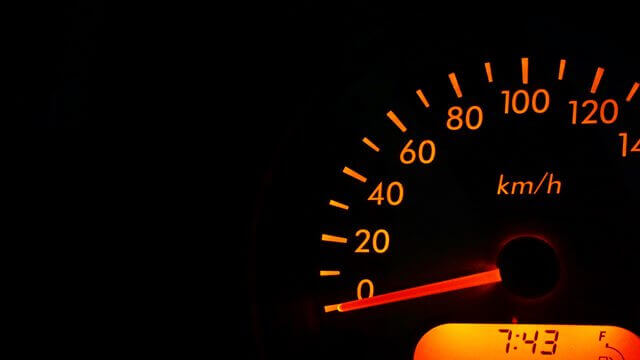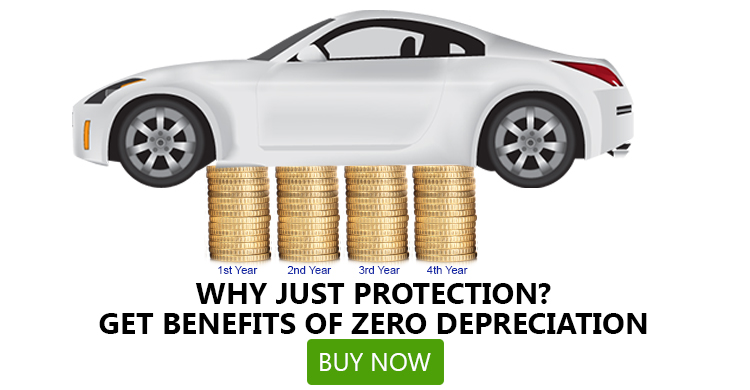Mr Rajesh Sharma, a resident of Mumbai had purchased a used car. At the time of purchasing, the car was insured through a comprehensive policy. So, Mr. Sharma was happy thinking that any eventualities would be taken care of by the insurer. However, he was wrong. An accident took pace during the policy year and Mr. Sharma lodged a claim of Rs. 65,000. But, much to his disappointment, insured refused to pay out the claim. When the claim was repudiated, Mr. Sharma resorted to consumer forum and alleged a deficiency in service. However, the verdict of the fourm was in favour of the insurer and poor Mr. Sharma had to shell out the entire Rs. 65,000 from his own pocket.
Now, you must be wondering why the claim was rejected as the car was insured by a valid car insurance policy in India? Yes, the insurance cover was valid but Mr. Sharma made only one mistake. He did not transfer the ownership and insurance in his name. The day when the accident occurred, both the car and the insurance were in the name of the previous owner. The insurer did the right thing by denying the claim and latter, the forum also came up with the same verdict. Hence, it is crucial to transfer the insurance and ownership when one buys an used vehicle in India. And the same goes for those who are planing to buy their existing car and buy a new one. If you are planing to sell your car you should be very clear about the process of transfer or you could face the same ordeal that Mr. Sharma had gone through.
The trend of selling used vehicles is upsurge in India. However, the market is not well-organized and this leads to lack of availability of right information regarding transfer of car insurance in India. In case you want to sell your car and are finalizing the deal with a buyer you need to know the right steps to complete the process of transferring car insurance policy and ownership. Here are some easy steps that will guide you to transfer car insurance cover and ownership flawlessly. Let's start with transfer of car insurance in India while selling used cars.
Transfer of car insurance in India
Transfer of car insurance can be of two types; you can either transfer the policy to the new owner or you can transfer the policy to your new car. Let's discuss the process of transferring the policy to the new owner.
Transfer of car insurance to new owner
First of all, you have to get the title and registration documents of your vehicle. In case you want to transfer the insurance to the new owner you need to submit all the relevant documents along with a form of consent duly filled up by the new owner to the concerned authorities. And, you also have to produce your existing car insurance documents along with the other documents.
You can recourse to your existing car insurance provider to complete the auto insurance transfer process successfully. Once you present all the required documents, your insurer will provide you with a grace period within which you need to make notification to the authority about the transfer. In case you fail to intimate the company within stipulated time, then your car insurance plan might cease to have effect and you will miss out on refunds or discounts. In order to complete the whole process, both you who is the ex-owner and the new owner need to be present and have the agreement signed.
Transfer of car insurance to your new car
If you want to transfer your auto insurance to your new vehicle you need to repeat the same process and you also have to ensure that the NCB you have accumulated doesn't get wasted.
Get NCB transferred in your name
Suppose, you have accumulated 50% NCB by not making any claim for 5 consecutive years. Your NCB will not be wasted as it belongs to you and not to your car. You can retain it if you change your car for a new one or if you shift to a different provider at the time of your car insurance renewal.
The foremost thing you have to do is fill the buyer-seller agreement form duly and send along with a letter of request for NCB transfer to your present car insurer. Your insurer will then issue a NCB certificate and send it to you. This certificate remains valid for 3 years and if you purchase any new vehicle within 3 years you can use your accumulated NCB on your newly purchased vehicle.
In case you have made one claim or multiple claims but still conceal that fact to acquire NCB, chances are high that you get caught. In case your new insurer verify the information provided by you with your previous insurer and find out a claim made by you, your new insurer will most likely remove the discount on premium.
NCB is not applicable on third party insurance premium
NCB is applicable only on own damage premium and not on the premium for third party cover. Those who have availed only third party car insurance are not entitled to receive any claim no matter how many years the have renewed their policies without any claims.
How beneficial is the retention of NCB?
As supposed earlier, your accumulated NCB is 50%. If the premium for the insurance of your new car is Rs. 15000 and Rs 12000 is the premium for the 'own damage' part of the policy. You can transfer your 50% NCB to the new policy and claim the discount. After the discount, your own damage premium would reduce to Rs. 6000 and the total payable premium would be Rs. 9000. So, you will end up saving as much as Rs. 6000.
Even though, you can transfer your NCB to your new car, it cannot get transferred to another person. There is just one exception to this hard and fast rule; if the policyholder dies, the ownership and insurance of the car can be transferred to his or her legal heir. Along with the car insurance policy, the legal heir will also get the applicable NCB. The legal heir can transfer the NCB to a new insurer when the time of car insurance renewal comes.
Reap the benefits of shifting the cover while selling your car
When you decide to sell your car and transfer the insurance to the new owner, you should keep a close eye on the coverage left in the car insurance policy at the time of transfer.
In case, you get the deal finalized with the buyer right after your car insurance renewal, the new owner will enjoy the coverage for almost a full year for which you have paid the premium. You should raise this point and look to increase the selling price as much as possible.
What happens in the event of incomplete car insurance transfer?
Both the ex-owner and the new owner will suffer if the car insurance policy transfer doesn't take place within the stipulated time. The new owner cannot make any claim in time of a theft or accident since the policy is not transferred in his or her name. The ex-owner on the other hands would be liable for mishaps that are not caused by him or her as the policy is still in his or her name and not in the name of the new owner.
Documents for Transfer of ownership
This process of transferring ownership of the vehicle involves in a plethora of paperwork. Being the seller, you have to deliver a set of documents to the buyer. Here is a list of documents for handover;
-
Registration Certificate (RC)
-
Taxation Certificate
-
PUC Certificate
-
Current Insurance Policy Copy
-
Declaration of vehicle sale
Once you are done with the handover of all these documents, you need to have the form duly filled up to successfully complete the ownership transfer process.
-
NOC Form which is also known as Form 28
-
Ownership Transfer Form which is also known as Form 29
-
Application of intimation or Motor vehicle transfer report which is also known as Form 30
Inform your regional RTO about transfer of ownership
The RTO where you have had your car registered needs to be informed about the sale and change of ownership of your car. Within 14 days after the sale, you have to send a letter informing about new owner. In case, the new owner doesn't live within the jurisdiction of the RTO where your vehicle is registered you need to locate the RTO under which jurisdiction the new owner resides. You have to produce another letter to that RTO about the new owner. Finally, once you get the acknowledgement letter from both RTOs you are no longer liable for any eventualities related to the car.
What happens if the car insurance ownership process remains incomplete?
If you don't complete the ownership transfer process when you sell your car you can be in a spot of bother in the event of an eventuality on the road. Since you are still the owner of the vehicle in papers, you will be liable for the consequences of the eventuality.
Conclusion
The transfer of car insurance in India does not take much effort. The policyholders need to collect and submit all the required documents. The seller of the car should also collect all the necessary proofs of the transfer in the form of documents. This helps sellers steer clear of any issue in coming years. As mentioned earlier, the procedure to transfer of used car insurance in India to either a new owner or a new vehicle is fairly simple. But, one should always go through all the information and check the process with the authorities to ensure a flawless transfer of car insurance policy.
At GIBL.IN, it is an effortless task to find out the best car insurance in India. So when you decide to sell your car and transfer its insurance cover you can easily compare all available deals so that you can locate and buy the best car insurance in India for your new set of wheels on your car insurance renewal online.











